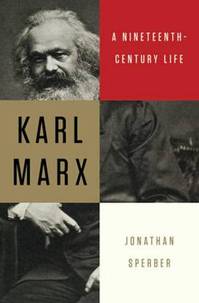Source of book image: http://s-usih.org/wp-content/uploads/2013/04/marx.jpg
(p. 14) Plenty of scholars sweated through the 20th century trying to reconcile inconsistencies across the great sweep of Marx’s writing, seeking to shape a coherent Marxism out of Marx. Sperber’s approach is more pragmatic. He accepts that Marx was not a body of ideas, but a human being responding to events. In this context, it’s telling that Marx’s prime vocation was not as an academic but as a campaigning journalist: Sperber suggests Marx’s two stints at the helm of a radical paper in Cologne represented his greatest periods of professional fulfillment. Accordingly, much of what the scholars have tried to brand as Marxist philosophy was instead contemporary commentary, reactive and therefore full of contradiction.
For the full review, see:
JONATHAN FREEDLAND. “A Man of His Time.” The New York Times Book Review (Sun., March 31, 2013): 14.
(Note: the online version of the review has the date March 29, 2013.)
The book under review:
Sperber, Jonathan. Karl Marx: A Nineteenth-Century Life. New York: Liveright Publishing Corp., 2013.

